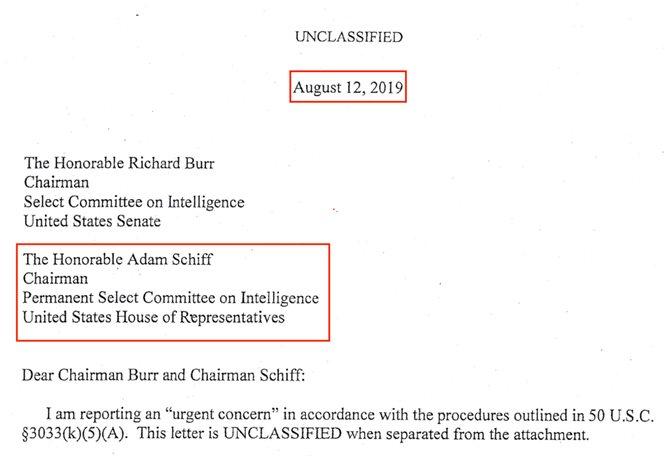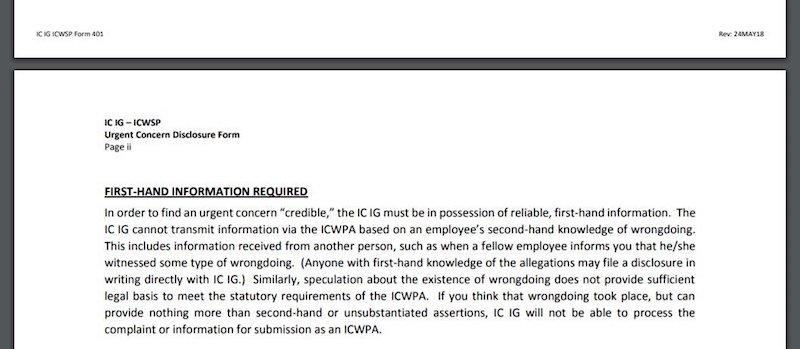With a little over a year to go before the next presidential election, politicians, pundits, and political players have grown comfortable yelling “treason” in each other’s faces. That’s a problem. Except in those rare circumstances when the charge is accurate, tagging your enemies as traitors lazily bypasses debating their ideas and actions and goes straight for accusations of betraying the nation on behalf of its enemies to such a heinous degree that it warrants punishment with a bullet or a noose.
It’ll be interesting to see whether, after the votes are counted, the side that comes up short will be comfortable conceding to “traitors”—or if the victors will overlook the “treason” of the vanquished.
One of the sillier examples comes from Paul Krugman, former economist and current stroker of Manhattanite prejudices. “Big Finance, given the choice between treason and a wealth tax, chooses treason,” huffed Krugman.
Were these big financiers defecting to North Korea or diverting support to ISIS? Nope! Krugman, a high-profile New York Times columnist, saw treason in the disinterest many Wall Street Democratic donors have in his preferred presidential candidate, Sen. Elizabeth Warren (D-Mass.).
If failing to support the “right” candidate constitutes treason, then it’s no surprise that politicians feel so free to level the same charge when referring to each other.
“Donald Trump is a traitor,” hissed super-wealthy Democratic presidential hopeful Tom Steyer, linking to recent news about President Trump’s abusive arm-twisting of Ukrainian President Volodmyr Zelensky. Trump wanted his counterpart’s guarantee of an investigation into potentially corrupt dealings with the Ukrainian natural gas company, Burisma, involving leading Democratic presidential hopeful Joe Biden and his son, Hunter.
“It’s treason,” agreed Rep. Peter DeFazio (D-Ore.). Long-shot Republican presidential challenger Bill Weld concurred that Trump had committed “treason, pure and simple.”
Not that Trump can’t give as good as he gets. “Spies and treason” is how he referred to whistleblower leaks about his dealings with Ukraine’s president. Trump also suggested that Rep. Adam Schiff’s (D-Calif.) comments about presidential conduct could be grounds for arresting the congressman for treason.
Rep. Adam Schiff illegally made up a FAKE & terrible statement, pretended it to be mine as the most important part of my call to the Ukrainian President, and read it aloud to Congress and the American people. It bore NO relationship to what I said on the call. Arrest for Treason?
— Donald J. Trump (@realDonaldTrump) September 30, 2019
It wasn’t the first time he lobbed the treason insult, having unleashed it against former FBI officials James Comey and Andrew McCabe for allegedly abusing their power to aid his political opponents. He also slammed Democrats who refused to applaud his State of the Union address for “treasonous” behavior.”
All of this would be little more than stupid and unseemly if “traitor” was just the new pronunciation of “jerk,” but it’s not. Treason is a specifically defined crime named in the Constitution, and one that potentially carries the death penalty.
“Treason against the United States shall consist only in levying war against them, or in adhering to their enemies, giving them aid and comfort,” the Constitution specifies.
Referring to that definition, Professor Steve Vladeck of the University of Texas School of Law warned last year (even before accusations of treason had reached current levels of popularity) that “treason is not defined by the gravity of the offense; it’s a crime indicating the clear support our enemies during wartime, period.” He called for a “long overdue moratorium” on calling people traitors.
Conspiring with another country may break all sorts of laws, but it’s not treason unless the United States is actually at war with that country, agrees Professor Carlton F.W. Larson of the University of California. Likewise, “leaks might violate other provisions of federal law, but they are not treason.”
That means that dirty political shenanigans don’t rise to the level of “treason.” Neither does failing to clap for a politician’s speech. Nor does—and this deserves emphasis—declining to open your checkbook for political candidates favored by excitable pundits.
Treason is so narrowly defined cautions Vladeck, because “for much of the pre-revolutionary period in England, the accusation was a means of suppressing political dissent and punishing political opponents.” To accuse somebody of treason was to put them beyond the pale and delegitimize anything they might do or say.
Unfortunately, that’s exactly where we are in America’s political life.
Over 40 percent Americans now say the political opposition is “downright evil” and many think the country would be better off if opponents “just died,” according to a paper published this year by Nathan P. Kalmoe and Lilliana Mason, political scientists at Louisiana State University and the University of Maryland. To deal with such evil opponents, “violence would be justified” if the opposing party wins the 2020 presidential election say 18 percent of Democrats and 13 percent of Republicans. Anticipating an election win increased support for violence among strong partisans in the study.
So, throwing the word “treason” around, unmoored from its actual meaning, is a weapon for delegitimizing political opposition and dissent. It’s a way of rallying the troops and telling them they don’t need to respect the enemy—they just need to destroy them.
This is not a new tactic; it’s too common, and very destructive of political systems.
“Perceptions of the out-party as a threat to the nation or way of life if they were to come to power or stay in power lead to violation of democratic norms,” write Jennifer McCoy and Tahmina Rahman of Georgia State University and Murat Somer of Turkey’s Koç University in “Polarization and the Global Crisis of Democracy,” published last year in American Behavioral Scientist. “Government supporters grow increasingly tolerant of illiberal actions to tamp down dissent and of extra-constitutional (or at times anti-constitutional) measures to extend an incumbent’s term in power. Oppositionists contemplate extra-constitutional (or at times anti-constitutional) measures to remove the incumbent group from power…”
The United States hasn’t gone that far, yet, and hopefully never will. But calling somebody a traitor certainly paints him or her as “a threat to the nation or way of life.” They don’t just have different ideas—they’re existential dangers.
And once you’ve acquired the habit of tagging your opponents as traitors and their political conduct as illegitimate, how do you gracefully concede a lost election to them? Or, should you be the winner once the votes are counted, how do you sit back and let your enemies continue their allegedly treasonous behavior in preparation for someday taking office?
Republicans and Democrats, politicians and pundits, are gleefully backing each other into a corner in their scramble for victory in next year’s elections and their grab for the sort of total victory that healthy democracies just don’t offer. Having smeared each other as traitors and done their best to delegitimize disagreement, they’re going to have a hell of a time extracting themselves from that tight spot. Unfortunately, the rest of us are stuck in that corner with them.
from Latest – Reason.com https://ift.tt/2o5WUjV
via IFTTT




